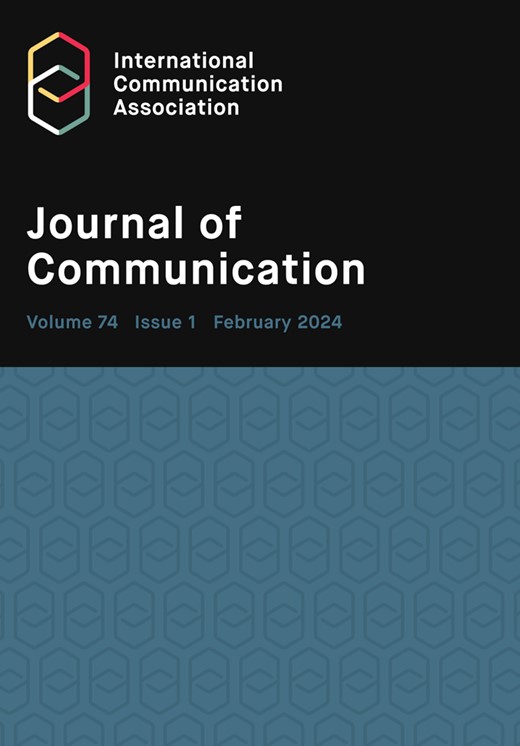为可信度而挣扎:从强奸受害者到参议员、独裁者和新闻品牌
IF 5.5
1区 文学
Q1 COMMUNICATION
引用次数: 0
摘要
一个罕见的、没有争议的当代公共事实是,在英国脱欧、特朗普和新冠肺炎大流行之后,尤其是西方的学术和大众话语,开始专注于将公众的不真实、错误信仰和不信任问题化,这种局面被更有争议地称为“后真相政治”。我们可以在“后真相”的旗帜下小心翼翼地看待三本不同的书,只要它意味着公众对获得公众接受的事实(与牛津词典的定义相反)的可能性感到焦虑。把它们放在一起考虑,可以让我们从更广阔的全局和更深刻的历史、社会和心理角度来看待这一危机。Dannagal Goldthwaite Young的《错误》鼓励我们看到,政治上令人困惑的两极分化和根深蒂固的(错误的)信仰,实际上是媒体经济逻辑和对代理、控制、理解和/或社区的基本心理需求的政治利用的产物。Sarah Banet-Weiser和Kathryn Claire Higgins的《可信度》一书探讨了后#MeToo和后真相的政治纠缠,探讨了在历史上特定的“可信度经济”中,女性和其他在结构上被贬低的真相讲述者是如何不相信事实的。本文章由计算机程序翻译,如有差异,请以英文原文为准。
Struggles for believability: from rape victims to senators, dictators, and news brands
One of the rare uncontested contemporary public facts is that especially Western academic and popular discourse became preoccupied with problematizing public untruth, misbelief, and distrust in the wake of Brexit, Trump, and the Covid-19 pandemic, a conjuncture more controversially referred to as “post-truth politics.” Three diverse books under review here can be gingerly approached under that post-truth banner, so long as it means a public anxiety about the possibility of securing publicly accepted facts (as opposed to, say, Oxford dictionaries’ definition). Considering them together affords us a broader global and deeper historical, social, and psychological perspective on the conjuncture. Dannagal Goldthwaite Young’s Wrong encourages us to see what appears as a perplexing polarization of politics and entrenched (mis)beliefs as, instead, a distilled product of media-economic logics and the political exploitation of basic psychological needs for agency, control, comprehension, and/or community. Sarah Banet-Weiser and Kathryn Claire Higgins’ Believability—engaging with the post-#MeToo and post-truth political entanglements—explores how disbelief in factual accounts has always been reserved for women and other structurally demoted truth-tellers in historically specific “economies of believability”. In Spin Dictators, meanwhile, Sergei Guriev and Daniel Triesman draw attention to shifting styles of dictatorship, from bloodily repressive autocratic and totalitarian historical examples—the test cases of Arendt’s proto-post-truth politics around the “fragility” of public facts—to something more liberal-democratic in terms of style and strategy.
求助全文
通过发布文献求助,成功后即可免费获取论文全文。
去求助
来源期刊

Journal of Communication
COMMUNICATION-
CiteScore
11.60
自引率
5.10%
发文量
41
期刊介绍:
The Journal of Communication, the flagship journal of the International Communication Association, is a vital publication for communication specialists and policymakers alike. Focusing on communication research, practice, policy, and theory, it delivers the latest and most significant findings in communication studies. The journal also includes an extensive book review section and symposia of selected studies on current issues. JoC publishes top-quality scholarship on all aspects of communication, with a particular interest in research that transcends disciplinary and sub-field boundaries.
 求助内容:
求助内容: 应助结果提醒方式:
应助结果提醒方式:


